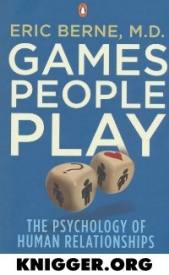Психология общения и межличностных отношений ...

Психология общения и межличностных отношений ... читать книгу онлайн
Для этой высокопрофессиональной книги характерна подлинная «многоаспектность» изложения материала, что выгодно отличает ее от аналогичных изданий, которые на ее фоне заметно проигрывают. К бесспорным достоинствам книги следует отнести колоссальную проработку отечественной и зарубежной литературы, а также широчайший охват вопросов. Это настоящая энциклопедия теоретической и практической психологии общения. Издание предназначено для психологов, педагогов, руководителей и многих других специалистов, для которых знакомство с этой книгой станет залогом успешной профессиональной деятельности.
Внимание! Книга может содержать контент только для совершеннолетних. Для несовершеннолетних чтение данного контента СТРОГО ЗАПРЕЩЕНО! Если в книге присутствует наличие пропаганды ЛГБТ и другого, запрещенного контента - просьба написать на почту [email protected] для удаления материала
339. Mowrer O. H. Learning theory and behavior. N. Y., 1960.
340. Muller S.,Johnson B. T. Цит. по Д. Майерс, 2004.
341. Murphy L. B. Social behavior and child personality: an exploratory study of some roots of sympathy.
N. Y., 1937.
342. Murrey H. A. Exploration in Personality. N. Y., 1938.
343. Murstein B. L. (ed.). Theories of attraction and love. N. Y., 1971.
344. Murstein B. L. Paths to marriage. Newbury Park, CA, 1986.
345. Neu J. Jealousy thoughts // Rorty A. O. (ed.). Explaining Emotions. Berkeley, 1980.
346. Newcomb T. M. The Acquaintance Process. N. Y., 1961.
347. Nias D. K. B. Marital choice: Matching or complementation // Cook M., Wilson G. (eds.). Love and attraction. Oxford, 1979.
348. Ninomiya J. S. Fuhren wie in wilden westen // Harvard manager. 1988. N. 4.
349. Offer D., Ostrov E., HowardK., Atkinson R. The teenage world: Adolescents self-image in ten countries.
N. Y., 1988.
350. Ortony A., Clore Y., Collins A. The cognitive structure of emotions. N. Y., 1988.
351. Osman L. M. Conformity or compliance: The study of sex differences in passers-by behaviour // British Journal of Soc. Psychol. 1982. N. 1.
352. Osterhouse R. A., Brock T. C. Distraction increases yielding to propaganda by inhibiting counterarguing // Journal of Personality and Social Psychology. 1970. Vol. 15.
353. Packwood W. T. Loudness as a variable in persuasion // Journal of Counseling Psychology. 1974. Vol. 21. 1-2.
354. Pallak S. R., Murrroni E., Koch J. Communicator attractiveness and expertise, emotional versus rational appeals and persuasion: A heuristic versus systematic processing interpretation // Social Cognition.
1983. Vol. 2.
355. Parke R. D. Fathers. Cambridge, MA, 1981.
356. Parke R. D., ONeil R. The influence of significant others on learning about relationships: from family to friends // Mills R. S., Duck S. (eds.). The developmental psychology of personal relationships.
Chichester, 2000.
357. Parrot W. G., Harre R. Embarrassment and the Threat to Character // Harre R., Parrot W. G. (eds.). The Emotions, Social, Cultural and Biological Dimensions. London, 1996.
358. Parrott W. G. The Emotional Experience of Envy and Jealousy // Salovey P. (ed.). The Psychology of Jealousy and Envy. N. Y., 1991.
359. Parsons F. Family structure and the socialization of the child // Parsons F., Baler R. (eds.). Family socialization and interaction process. N. Y., 1955.
360. Pedersen D., Shoemaker M. Dimensions of Romantic Attitudes // Perceptual and Motor Skills. 1993.
Vol. 77.
361. Peele S. Fools for Love: The Romantic Ideal, Psychological Theory, and Addictive Love // Sternberg R., Barnes M. (eds.). The Psychology of Love. New Haven, 1988.
362. Pegalis L. J., Shaffer D. R., Bazzini D. G., Greenier K. On the ability to elicit self-disclosure: Are there gender-based and contextual limitations on the opener effect? // Personality and Social Psychology
Bulletin. 1994. Vol. 20.
363. Peplau L. A., Gordon S. L. Women and men in love: Gender differences in close heterosexual relationships // O’Leary V. E., Unger R. K., Wallston B. S. (eds.). Women, gender, and social psychology.
Hillsdale, N. Y., 1985.
364. Peters D. P., Ceci S. I. Peer-review practices of the psychological journals: The fate of published articles, submitted again // The Behavioral and Brain Sciences. 1982. Vol. 5.
365. Pettit G. S., Bates J. E., Dodge K. A. Supportive parenting, ecological context, and children’s adjustment: a seven-year longitudinal study // Craig W. M. (ed.). Childhood social development. Madlen, 2000.
366. Petty R. E., Cacioppo J. T. Communication and persuasion: Central and peripheral routes to attitude
change. N. Y., 1986.
367. Petty R. E., Cacioppo J. T. Effects of forewarning of persuasive intent and involment on cognitive response and persuasion // Personality and Social Psychology Bulletin. 1979. Vol. 5.
368. Petty R. E., Cacioppo J. T. Forewarning cognitive responding and resistance to persuasion // Journal of Personality and Social Psychology. 1977. Vol. 35.
369. Petty R. E., Haugtvedt C. P., Smith S. M. Elaboration as a determinant of attitude strength: Creating attitudes that are persistent, resistant and predictive of behavior // Petty R. E., KrosnickJ. A. (eds.). Attitude strength: Antecedents and consequences. Hillsdale, N. Y., 1995.
370. Petty R. E., Schumann D. V., Richman S. A., Strathman A. J. Positive mood and persuasion: Different roles for affect under high and low elaboration conditions // Journal of Personality and Social
Psychology. 1993. Vol. 64.
371. Petty R. E., Wegener D. T. Attitude change: multiple roles for persuasion variables // Gilbert D., Fiske S., Lyndzey G. (eds.). Handbook of Social Psychology, N. Y., 1998.
372. Phares E. J. Locus of control in personality. Morristown, N. Y., 1976.
373. PilkonisP. A., Zimbardo P. G. The personal and social dynamics of shyness // Izard C. E. (ed.). Emotion in personality and psychopathology. N. Y., 1979.
374. Pratkanis A. R., Greenwald A. G., Leippe M. R., Baumgardner M. H. In search of reliable persuasion effects: III. The sleeper effect is dead. Long live the sleeper effect // Journal of Personality and Social
Psychology. 1988. Vol. 54.
375. Purcell J. Mapping management styles in employee relations // Journal of Management Studies. 1987.
N. 5.
376. Rando T. A comprehensive analysis of anticipatory grief: Perspectives, processes, promises and problems // Rando T. (ed.). Loss and anticipatory grief. Lexington, 1986.
377. Rhodes N., Wood W. Self-esteem and intelligence affect influenceability: The mediating role of message reception // Psychological Bulletin. 1992. Vol. 111.
378. Ricks S. S. Father-infant interaction: A review of empirical research // Family Relation. 1985. Vol. 34.
379. Rondal J. Fathers and mothers speech in early language development // Journal of Child Language. 1980. N. 7.
380. Rosenberg L. A. Group size, prior experience and conformity // Journal of Abnormal and Social Psychology. 1961. Vol. 63.
381. Rosenblatt A., Greenberg J. Depression and interpersonal attraction: The role of perceived similarity // Journal of Personality and Social Psychology. 1988. Vol. 55.
382. Rosenhan D., London P. Foundations of abnormal psychology. San Francisco, 1970.
383. Rotter J. B. Generalized expectation for internal vs. external control of reinforcement // Psychological Monographs. 1966. Vol. 80 (Whole N. 609).
384. Rubin K.H. Recept perspectives on social competence and peer status: Some introductory remarks //
Child development, 1983. Vol. 54. Р. 1383-1385.
385. Rubin R. B. Ideal traits and terms of address for male and female college professors // Journal of Personality and Social Psychology, 1981. Vol. 41. Р. 966-974.
386. Rubin Z. Children’s friendships. Cambridge, 1980.
387. Rubin Z. Measurement of romantic love // Journal of Personality and Social Psychology. 1970. Vol. 16.
388. Rusbult C. E., Morrow G. D., Johnson D. J. Self-esteem and problem-solving behaviour in close relationships // British Journal of Social Psychology. 1987. Vol. 26.
389. Russel A. Sex difference in children’s relationships learning // The developmental psychology of personal relationships. 2000.
390. Russell R., Wells P. Personality and quality of marriage // British Journal of Psychology. 1994. Vol. 85.
391. Rutter M. Parentchild separation: Psychological effects on the children // Clark A. D., Clark A. M. (eds.). Early experience: Myth and evidence. London, 1976.
392. Saitz R. L., Gervenka E.J., Pecarsky M. Handbook of Gestures. The Hague, 1972.
393. Sakurai M. M. Small group cohesiveness and detrimental conformity // Sociometry. 1975. Vol. 38.


























